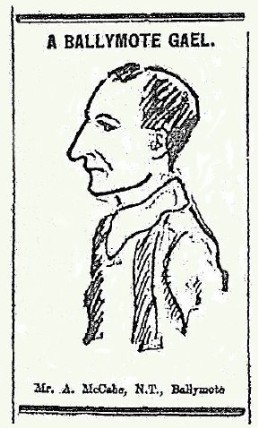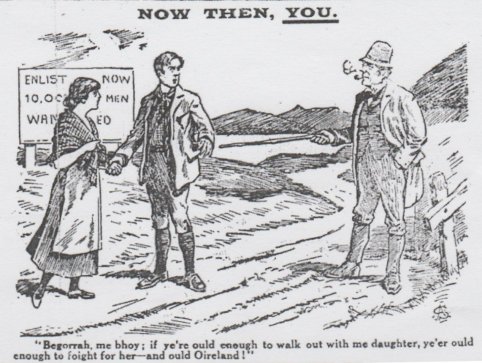Sligo 1915 - Sligo Poets
Main menu:
- Home
-
1912
- 1912
- Sligo Poetry 1912
-
1913
- 1913
- Sligo Poetry 1913
-
1914
- 1914
- Sligo Poetry 1914
-
1915
- 1915
-
Sligo Poetry 1915
- Sligo Newspaper Poems
- Sligo Champion
- Sligo Independent
- Sligo Nationalist
-
1916
- 1916
-
Sligo Poetry 1916
- Sligo Newspaper Poems 1916
- Sligo Champion
- Sligo Nationalist
- Sligo Independent
- The Poets
- Bibliography
- The Author
Sligo 1915
There was very little National Volunteer activity in Sligo in 1915. Efforts were made to revive the organisation and in March a Sligo Volunteer County Board was formed.
Attempts to revive corps and form battalions were not successful and in April the RIC County Inspector reported that ‘Drilling among the Irish National Volunteers is practically at an end’.
The rival anti-
The RIC County Inspector reported at the end of September that efforts to revive the United Irish League in Sligo had not been successful though at the end of October he did say that ‘some of the UIL branches have been reorganized by local efforts’.

Alex McCabe was principal of Drumnagranchy National School near Keash and an altercation with a curate led to a Department of Education enquiry in June 1915. The outcome was victory for McCabe but the following month Rev P.J. O’Grady, PP, gave him three months’ notice, calling him: ‘A recognised associate and leader of an objectionable and political society in the parish’. Drawing of McCabe from the Roscommon Herald.
It seems that the bishop was about to agree to McCabe’s reinstatement because of parental pressure when McCabe was arrested in Sligo with gelignite in his possession in early November. At his February 1916 trial a jury found him not guilty.
A company of Irish Volunteers was started in Sligo town in late 1915 by Seamus MacGowan who had come to Sligo from Dublin to work as a reporter on the Sligo Nationalist. This small group also included Billy Pilkington, James Keaveney and Jim Kirby who was the first captain.
Recruiting advertisements:
Below: from Sligo Champion 24 April 1915.
Bottom Right: from Sligo Independent 20 February 1915.

There was continued official dissatisfaction with the numbers enlisting in Sligo especially in the rural areas. Charles O’Hara chaired a Sligo recruiting committee which comprised unionists and nationalists including Jinks, Foley, Hanley and Monson.
There were recruiting tours in the county in June, September and November. The RIC County Inspector reported a warm welcome everywhere but ‘few recruits have volunteered as a result’. W.R. Fenton, clerk of the Crown and Peace in Sligo, said that ‘The labouring and other classes had done very well’ but criticized the poor response from the farmers’ sons.
The local press continued to report the deaths of Sligo natives, including two sons of Colonel William G. Wood-
At a meeting in Tubbercurry thirty-
